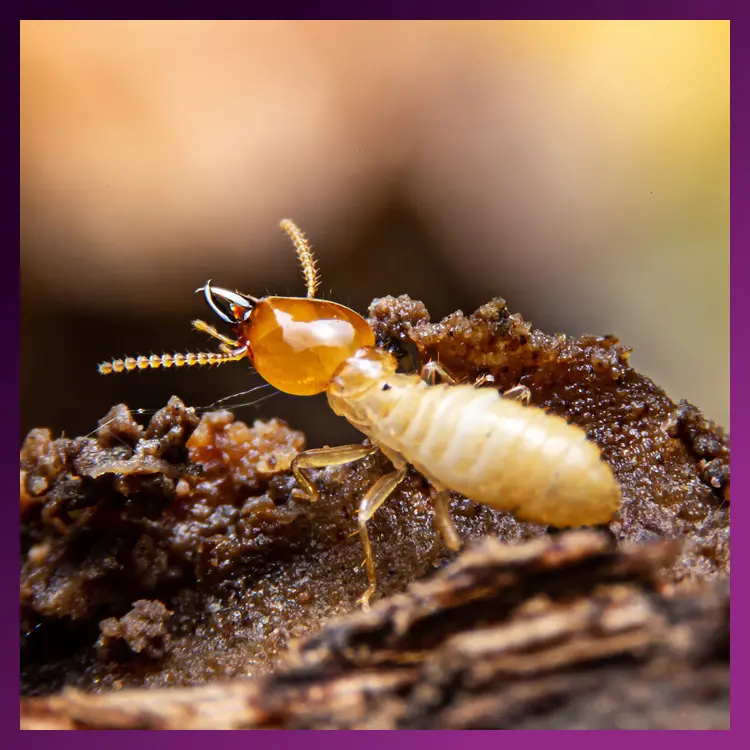
Wildlife Control in Midlothian
Safe Solutions for Raccoons, Squirrels, and More
Hearing scratching in your Midlothian attic? Wildlife like raccoons and squirrels often seek shelter in homes, tearing up insulation and chewing wires. This creates serious fire hazards and health risks for your family.
At Tom Samples Pest Control, we provide service that feels like family. As a veteran-owned company with 68+ years of collective experience, we use proven, safe IPM methods to humanely resolve your wildlife issues and protect your home..
Get emergency wildlife control by calling (972) 694-1106, or contact us online for same-day service.
Common Wildlife Threats in Midlothian
North Texas is home to a variety of wildlife that can thrive in suburban environments. While many animals are harmless, a few species can cause significant property damage and pose health risks when they move into your home.
- Raccoons: Highly intelligent and strong, raccoons can tear open vents and soffits to access attics. They destroy insulation for nesting, and their droppings (latrines) can carry dangerous parasites.
- Squirrels: These rodents are notorious for chewing. They often enter homes through small gaps near the roofline and can gnaw on electrical wiring, creating a major fire hazard.
- Opossums: Opossums are opportunistic and often seek shelter under decks, porches, or in crawl spaces. They can carry fleas and create foul odors and unsanitary conditions.
- Skunks: Known for their powerful odor, skunks are diggers that often burrow under foundations or sheds. They become a serious problem if they spray near an HVAC unit or a pet.
- Armadillos: While not a threat indoors, armadillos can destroy a lawn or flower bed in a single night as they dig extensively for grubs and insects.
Identifying the correct animal is the first step to a long-term solution. Each of these animals requires a different removal strategy and, most importantly, a plan to keep them from returning.


How Can We Help You?
Our Featured Services

Hear From Your Friends & Neighbors!
Read Our Reviews
At Tom Samples Pest Control, your satisfaction is our priority! See for yourself what our customers have to say about working with us.
-
“The prices are very affordable, and I only wish we had found him sooner!”- Tyra M.
-
“We have been using this company for over 20 years. Love the way they treat their customers!”- Betty J.
-
“I simply will not call anyone else to treat our properties, because Samples gets it done right the first time.”- Josh M.
-
“Super friendly service and eager to assist in any way.”- Watauga Animal Hospital
-
“Herschel was very personable, professional, and extremely detailed. He was not rushed and resolved all my pest issues.”- Satisfied Customer
-
“When they say, "Integrity, Honesty and Character," they live up to every word.”- Daniela C.
FAQs About Wildlife Control
What wildlife or animals commonly require removal in Midlothian?
Common animals include raccoons, squirrels, opossums, skunks, birds, and snakes. These species often seek shelter or food around homes and businesses, creating concerns for property safety and health.
Is animal removal safe for my family and pets?
Yes, our Integrated Pest Management approach emphasizes methods and products that are safe for people and pets. We carefully follow state and local guidelines for humane and responsible removal.
How quickly can you respond to a wildlife or animal problem?
We strive to offer same-day scheduling for calls within Midlothian and provide emergency support for urgent cases. Our team is local, enabling fast and reliable responses.
What happens after the animal is removed?
After removal, we share prevention tips and may recommend repairs or modifications to reduce the risk of future wildlife intrusions. Our goal is to help you maintain a protected environment moving forward.
Do I need a permit or approval for animal removal?
In most cases, property owners can request wildlife removal. Our team is familiar with Texas Parks and Wildlife guidelines and handles compliance with legal requirements for protected species when necessary.